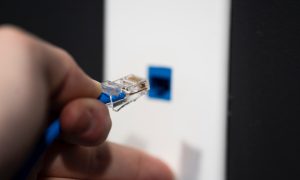Coccinelle is the stage name of the French actress Jacqueline Charlotte Dufresnell. She was one of the first transgender people in Europe, and the transgender movement made her an international star. In addition to acting, she was also a famous club singer. Read on to learn more about her life and career. Here’s the story of her transgender journey.
Coccinelle was a transgender activist
A pioneering transgender activist, Jacqueline Charlotte Dufres-Noy was born in Paris. She became famous after undergoing sex-reassignment surgery. Her life was one of courage and scandal. Her actions made her a household name and inspired many in France to learn about transsexuality. She later went on to write an autobiography titled Coccinelle.
Coccinelle underwent gender-affirming surgery when she was 19 years old. In 1958, she had the surgery performed by doctor Georges Burou, who was also a French actor. At thirty, Coccinelle married journalist Francis Bonnet. This marriage was the first transgender marriage to be recognized by the French government. She was rebaptized in her new name, Jacqueline.
Throughout her life, Jacqueline Dufresnoy’s struggle for equality was celebrated in the media. She was the first transgender celebrity in Europe and a major star in France. Her stage name, Coccinelle, was inspired by the French word for ladybug, and her stage name was Coccinelle. Her success led to her appearing in films and cabaret revues around the world. Eventually, she became an icon in Paris and was known as Coccinelle.
Throughout her life, Coccinelle was a vocalist and artist. Her songs emphasized her new gender identity. She wore outrageous mink coats, scarlet lipstick, and a large nose, and she toured the world. She also performed in films, including Europa di Notte (1959) and Los Viciosos (1962).
In addition to her activism, Coccinelle and Jean-Pierre also shared a life as transgender activists. Together, they created the organization Dévenir Femme to help those going through transition. The organization is affiliated with the Center for Aid, Research, and Information on Transsexuality. Although Jacqueline’s activism was an important part of her life, she had a full and rich personal life outside of activism. In fact, her marriage helped set down a new legal right for transgender people to marry in France. This was acknowledged by the Catholic Church as well.
- Also Read: Brian Stelter Sources Reliable Complete Details!
- Also Read: Is Swimsecure Legit? Authentic Details!
- Also Read: Is Omf com Offer Legit? Authentic Details!
She founded a cabaret show
As the first transgender person to marry in the Catholic Church, Jacqueline Charlotte Dufresnos was a pioneer of transgender rights. She was born into a poor family and lived in Paris’ Temple district. She eventually worked her way up to the top of the salon scene. She also performed in various cabaret shows in her hometown.
Dufresnoy’s first performance was in 1953 as part of a transgender revue called Cherchez la femme. She had been outspoken about her transition and her sexuality, and wrote an autobiography, Coccinelle. She later moved to Marseilles where she founded her own cabaret show. Her career continued to develop and she was married three times.
As a teenager, Jacqueline Charlotte Dufresinoy explored her desire to be female. In fact, she was nicknamed Coccinelle, which translates to ‘ladybug.’ During her first cabaret performance, she performed as Coccinelle at Madame Arthur, where she performed a song from the movie Premier rendez-vous.
During the 1960s, Coccinelle’s cabaret tour toured Europe. Her act was based on popular sex symbols. In addition, she starred in a number of films, including the Italian romantic drama Europa di Notte (1959) and the Argentine thriller Los Viciosos. She also performed at a cabaret run in Paris, where she was a guest star of the show.
She underwent gender reassignment surgery
The first trans woman was born in Paris, France. Jacqueline Charlotte Dufresnoy was born a male and experienced gender dysphoria from a young age. At the age of fourteen, she underwent gender reassignment surgery to become a woman. She was formerly known as Coccinelle, which means “ladybug”. Dufresnoy underwent vaginoplasty surgery in Paris seven years later.
Jacqueline Charlotte Dufres-Noy was the first transgender celebrity in France. She was a French actress and cabaret entertainer. She became a cultural icon and a household name in Paris. She was famous for her mink coats and polka-dotted red dresses. She was the first transgender celebrity in Europe.
As a young teenager, Coccinelle had her sex-reassignment surgery performed by Dr. Georges Burou. At the age of 30, she married French journalist Francis Bonnet, making it the first trans marriage recognized by the French government. In addition, the Catholic church rebaptised her as Jacqueline. During her early twenties, she was a celebrated cabaret singer.
In the 1960s, Coccinelle became an activist for transgender people. She founded the Devenir Femme organization, which provides emotional and practical support to transgender people. She also founded the Center for Aid, Research, and Information for Transsexuality. She died of a stroke a few years later. While there are many stories about Coccinelle, the transgender community is grateful to her for her bravery.
She became a major star
Born as a male, Dufresnoy became renowned as a transgender woman in the 1960s. At an early age, she started to wear dresses with a femme-coded pattern. She was also known as ‘Coccinelle’ or ‘Ladybird’, in honor of her favorite red-spotted dress. She said that the name was chosen so she would not be arrested for impersonating a man.
After she made her stage debut at the famous Madame Arthur in Paris, she was soon moved to the popular music hall, Le Carrousel de Paris. Her bombshell look wowed audiences. She was said to have been modeled after Brigitte Bardot. As her star continued to rise, she became a major star of theater and film. After achieving fame in France and the United States, she also toured the world to raise awareness for transgender people.
After the surgery, Dufresnoy legally changed her name to Jacqueline-Charlotte. She quickly became a major star in France. She traveled the world as an artist and performed in a nightclub in Germany for 10 years. She also became a successful actress and singer. Despite the controversy surrounding her name change, Dufresnoy went on to become a household name.
- Also Read: Terrorism Charges Against Former Prime Minister Imran Khan Read Details!
- Also Read: Is Styleprint Legit? Authentic Details!
- Also Read: Medusa Tattoo Meaning – The Legend of Medusa TikTok tattoo trend explained!
Jacqueline Charlotte Dufreshnoy was born in Paris on August 23, 1931. She was born male but had undergone gender reassignment surgery after she discovered she was transgender. She was the first transgender celebrity in Europe. At one point, Dufreshnoy even performed in a masquerade party wearing a red dress with black polka dots on it. She was then a leading actress in her own movie.
She founded Devenir Femme
Dufresnoy was the founder of the Association Devenir Femme, which helped transgender people. The organization also helped organize the Centre for Aid, Research and Information on Transsexuality and Gender Identity. In 2006, she suffered a stroke and passed away in a hospital. The group was named after her. Dufresnoy was a pioneer in the transgender community and is an inspiration for many.
Coccinelle became an icon for transgender people in the 50s. After undergoing sex reassignment surgery, she changed her name to Jacqueline-Charlotte from Jacques-Charles. Coccinelle worked extensively as an activist and founder of organizations. She also founded the Association Devenir Femme, a support group for transgender women.
Born as a boy, Dufresnoy struggled with the stigma of her identity. Her family was supportive, and she started dying her hair blonde when she was young. She then began dressing in feminine-coded clothes at a young age. She was given the nickname ‘Coccinelle’ after a fancy dress party, and the name stuck. She performed a song from the film Premier rendez-vous on stage at the Carrousel de Paris. Ultimately, she was granted gender reassignment surgery by chance in Morocco.
She has a long list of accomplishments. Her first marriage to French journalist Francis Bonnet was a groundbreaking event that established legal precedents for transgender marriage in France. She later married Paraguayan dancer Mario Costa, who died in 1977. In 1996, she married Thierry Wilson. Wilson was in his mid-20s. However, Dufresnoy was still in her mid-60s when she married him.
Today, Tuesday 23 August, the famous Google Doodle is recalling LGBTQ+ pioneer Jacqueline Charlotte Dufresnoy on what might have been her 91st birthday.
Dufresnoy, maybe better realized by her stage name Coccinelle, was a vocalist, performer and lobbyist who was the main French individual to go through orientation insisting a medical procedure.
Who was Jacqueline Charlotte Dufresnoy?
Dufresnoy was brought into the world on 23 August 1931 in Paris, who has spoken about being awkward with the way that she was doled out male early in life.
She once said: “As a kid matured four, I realized I was unique. I was a young lady, truly, however no one could see it.”
Dufresnoy allegedly began chemicals in 1952, and started wearing hairpieces and dresses in her young life.
- Also Read: Fifa 23 Edition Ultimate Pre-Purchase and Pre-Order, Release Date!
- Also Read: Avenue Avebury Tonbridge Stabbing Case How Many People were Arrested?
As a teen, she got the moniker that she would later take on as her stage name – after wearing a red dress with dark polka spots to an extravagant dress party, she was called Coccinelle, and that implies ladybug in English.
In 1953, she made her presentation at Chez Madame Arthur, a drag men’s club setting, playing out a melody from the film Premier rendez-vous. She then, at that point, stowed a spot at Le Carrousel de Paris, a famous music corridor with various other transsexual entertainers.
After five years, in 1958, Dufresnoy went through orientation reassignment medical procedure in the wake of learning of a specialist in Morocco that carried out the system “by some coincidence”.
She said: “It was by chance on visit in 1958 that I discovered that a gynecologist was carrying out procedure in Morocco that made a man a lady.
“So I went to Casablanca to meet the specialist who planned to redress this blunder of the idea of which I was a casualty.
“At long last, I would have been a genuine lady, as a unified whole, all around.”
After the medical procedure, Dufresnoy said: “Dr. Burou corrected the error nature had made and I turned into a genuine lady, within as well as the outside.
“After the activity, the specialist recently said, “Bonjour, mademoiselle”, and I realized it had been a triumph.”
Pondering the medical procedure, she said: “When writers found out, I was on the first page of the multitude of magazines, which made the specialist a fortune and pushed me to superstardom.
“I was the principal French individual to have a sex-change. Inconceivable, yet obvious.
“It implied I could never again be captured by the team of police for mimicking a man.”
In France at that point, it against the law against the law to wear clothing not related with your relegated orientation.
After the activity, France altered its regulations to permit subtleties on birth declarations to be changed following sex reassignment medical procedure, and Dufresnoy lawfully changed her name to Jacqueline-Charlotte.
She turned into a media sensation when she got back to France after her activity, and would proceed to turn into the principal transsexual French lady to turn into a significant star. She ventured to the far corners of the planet as an entertainer and vocalist for a very long time, and for quite some time showed up in supper club in Germany.
Her profession as an entertainer additionally kept on developing, showing up in films like Europa di notte (1959), Los Viciosos (1962) and Días de viejo variety (1968).
For a very long time somewhere in the range of 1963 and 1964, she played out the Cherchez la femme revue at the Olympia in Paris.
She was very straightforward about being transsexual, and lived with a refusal to conceal this piece of her character. In 1987, she delivered her collection of memoirs, Coccinelle, that investigated her orientation, change and profession in front of an audience.
Her last open presentation was in 1990, and she later moved to Marseilles where she ran her own nightclub from 2002 to 2005.
Is it safe to say that she was hitched?
Dufresnoy wedded multiple times throughout the span of her life – first, to French columnist Francis Bonnet in 1960 in a Catholic wedding service. For the wedding to go on, Dufresnoy needed to get rebaptized as Jacqueline.
Her most memorable marriage really settled a lawful point of reference for transsexual individuals’ all in all correct to wed in France, and it was the primary association highlighting a transsexual individual to be formally acknowledged by the French state.
She and Bonnet’s marriage was subsequently disintegrated in 1962.
Dufresnoy then wedded Mario Costa, a Paraguayan artist, in 1963 until he died in 1977.
At last, she wedded individual transsexual extremist Thierry Wilson in 1996, with whom she stayed until she kicked the bucket.
The pair got together when Dufresnoy was in her mid-60s and Wilson in his mid-20s, and their wedding service was circulated live on French TV.
After her passing, Wilson reviewed in a meeting how Dufresnoy realize that the media would go wild over their relationship because of their age contrast, and invited the thought.
He said: “Goodness yet the way in which she cherished an outrage.”
While she was with Wilson, Dufresnoy established the association Denvir Femme, which planned to give assistance and backing to transsexual individuals attempting to get to orientation certifying medical procedures.
She likewise assisted with arranging the Center for Aid, Research and Information for Transsexuality and Gender Identity.
When did she kick the bucket?
In July 2006, Dufresnoy was hospitalized following a stroke – she later kicked the bucket on 9 October that year in Marseille, at age 75.
Her memorial service was held at the Eglise Saint-Roch de Paris, where Father Philippe Desgens told grievers: “Every one of the offspring of God have a spot in the congregation.”
He added: “By her marriage in chapel after her activity, and during her entire life, Coccinelle showed her confidence.”











